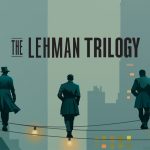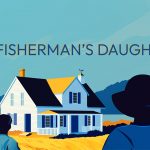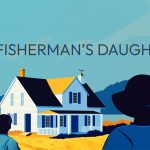Poetry inspires Frankly Music concert
Baritone Kelly Markgraf anchors a concert dedicated to art song and chamber music which explores the nuances of dramatic verse - with and without words.
Great poetry can inspire great music – especially when the poetry taps the emotions and explores nuanced themes. The Frankly Music series will offer a program dedicated to songs and to music without words Monday, December 2, at 7 p.m. (repeated Tuesday evening) at the Wisconsin Conservatory of Music. The core of the program is built around baritone Kelly Markgraf, who brings extensive credentials in expressive art song and in opera. But seven musicians serve as a supporting cast.
Frank Almond organized the program to explore how various composers treat specific texts. His perspective: “All the texts can be interpreted on multiple levels – I find it fascinating how each composer’s setting made certain elements clearer and others much more abstract depending on the musical language and whether or not someone was actually singing.”
The drama in the poetry and in the music is drawn less from love or evil but from the consequences of life between theses poles. Preview the poetry, then attend the concert to witness how composers and interpreters match music to text. Consider the sampled text or follow links to complete poems:
Franz Schubert, a master of romantic song, selected a poem by Goethe borrowed from Scandavian folklore. In Erlkönig a man holds his young son as they ride home through the night. The son is startled by a vision of the Erlkönig (Alder King) coming after him.
“My son, wherefore seek’st thou thy face thus to hide?”
“Look, father, the Alder King is close by our side!
Dost see not the Alder King, with crown and with train?”
“My son, ’tis the mist rising over the plain.”
The father comforts his son through several stanzas, unaware of what is happening until it is too late –
“My father, my father, he seizes me fast,
For sorely the Alder King has hurt me at last.”
The father now gallops, with terror half wild,
He holds in his arms the shuddering child;
He reaches his farmstead with toil and dread, –
The child in his arms lies motionless, dead.
___________________________________________________________________________
One of the few poems set for baritone and string quartet offers even more deliberate ambiguity.
Matthew Arnold’s Dover Beach has been set by Samuel Barber.
Arnold draws metaphors from observations of the surf —
Listen! you hear the grating roar
Of pebbles which the waves draw back, and fling, …
With tremulous cadence slow, and bring
The eternal note of sadness in.
The speaker shares a deeply pessimistic view with his companion. These lines have been repeated often –
Ah, love, let us be true
To one another! for the world, which seems
To lie before us like a land of dreams,
And we are here as on a darkling plain …
Where ignorant armies clash by night
Select “media” at this link to hear Markgraf perform Dover Beach.
___________________________________________________________________________
In War Scenes contemporary composer Ned Rorem has set autobiographical prose by Walt Whitman describing his witness to the Civil War. Whitman describes the horrors of war in detail, a fertile source for Rorem’s atonal music –
What scene is this? — is this indeed humanity — these butchers’ shambles? There they lie, in an open space in the woods, 300 poor fellows — the groans and screams mixed with the fresh scent of the night, that slaughter-house!
After further testimony, Whitman concludes that his reports will have no consequence –
Future years will never know the seething hell of countless minor scenes – the real war will never get in the books.
___________________________________________________________________________
A string sextet will perform Transfigured Night by a “pre-Schoenberg” Schoenberg. Schoenberg applied 19th-century techniques in this romantic tone poem, but this music foreshadows his tradition-breaking Expressionist work in the 20th century. We hear emotions – anxiety, regret, compassion, love – expressed at the very limits of conventional harmony. Schoenberg did not need atonality to express these emotions.
A summary of the story will serve – Richard Dehmel‘s poem, Zwei Menchen, describes an unnamed man and a woman walking through a dark forest on a moonlit night. The woman shares a dark secret with her new lover: She bears the child of another man. Schoenberg’s music reflects the stages of Dehmel’s poem, beginning with the sadness of the woman’s confession, a neutral interlude wherein the man reflects upon the confession, and a finale that embodies the man’s bright acceptance and forgiveness. Wagnerian motifs pervade the work. (You can find the full text of the poem here.)
The story is faithfully rendered without words, including the emotional transitions in the dialogue between the lovers.
___________________________________________________________________________
Almond has selected three short Samuel Barber works – transcribed versions for violin and piano without words: St. Ita’s Vision, The Desire for Hermitage and Sure On This Shining Night. These choices offer a more upbeat viewpoint.
The evening’s ensemble blends local and national resources: Pianist Jeannie Yu will accompany Markgraf and join violinist Frank Almond for the Barber Transcriptions. The string sextet and quartet will be staffed by – violinist Margot Schwartz, violists Nicholas Cords and Wei-Ting Kuo, and cellists Stephen Balderston and Julian Schwarz.
Tickets may be purchased online or at 414-443-8802. Free valet parking will be available.
























